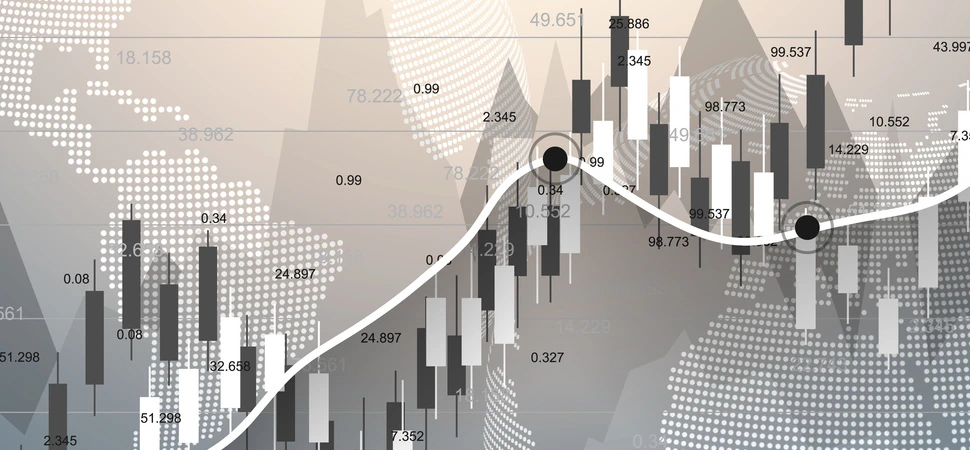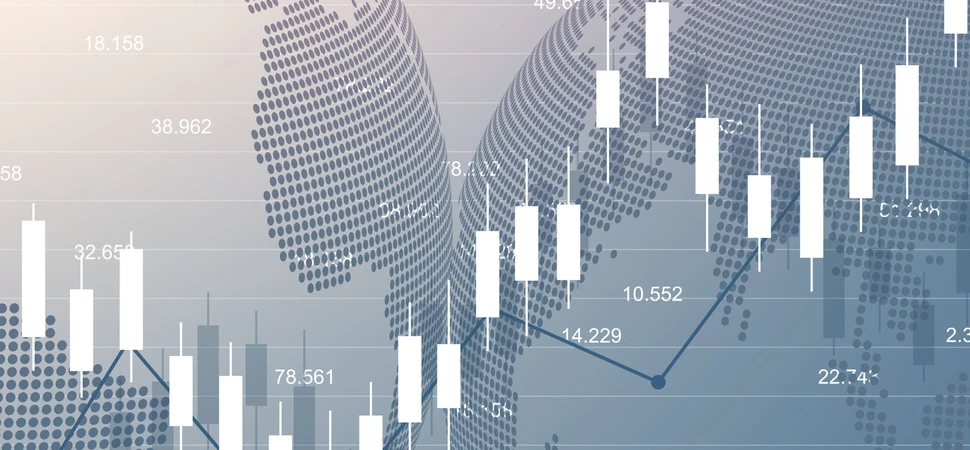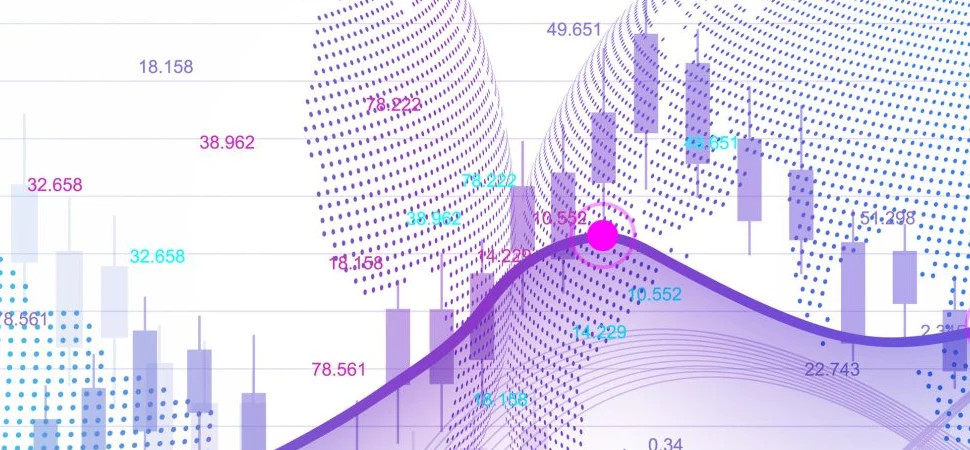07.05.2024
Евгений Лебедев
368

Spread is the difference between the buy price at which a broker is willing to buy and the sell price at which a broker is willing to sell, for a currency pair. The spread can be narrow or wide depending on the pair being traded, economic conditions, trading session, etc. Knowing how spreads work is extremely important as they have a direct impact on trading costs and potential income in the Forex market.
Types of Forex spreads
Fixed spreads
Fixed spreads remain the same under all market conditions. The spread is usually calculated by the smallest unit of change in the price of a currency pair. The exact method of calculation may vary from broker to broker. Let's say a broker provides a fixed spread of 2 pips for the EUR/USD pair. Most brokers usually have a fixed spread of 5 pips or less. The spread does not change regardless of whether the market is calm or volatile.
One of the advantages of fixed spreads is that they provide security and price transparency. As a trader, you will always know how much to expect when trading. You can also accurately predict how much you will spend on each trade. However, fixed spreads can lead to higher costs in normal/quiet market conditions, and some brokers may offer unreasonably wide fixed spreads.
Another problem is that fixed spreads do not adapt to market conditions. This makes them unsuitable for news trading. According to statistics, you are more likely to lose money when trading on the news. In addition, they may not reflect actual interbank pricing, especially during periods of high volatility. Speculators who open and close positions quickly often prefer to work with fixed spreads. The predictable nature of the associated costs allows them to manage their profits more effectively.
Variable (floating) spreads
As the name implies, floating spreads change from time to time depending on market conditions, reflecting actual interbank pricing. Typically, spreads increase during financial data releases or when market volatility is high. For example, the EUR/USD spread may widen by up to 20 bps when the US jobless claims report is released.
Variable spreads can have lower trading costs than fixed spreads, especially when the market is calm. This is because floating spreads tend to widen when economic data such as the consumer price index, GDP growth and interest rate hikes or cuts are released compared to fixed spreads. Another advantage of floating spreads is that they are ideal for long-term time frames. If you are a swing trader with a large account balance, you can take advantage of these spreads. The disadvantage of floating spreads is that they are unpredictable when the market is highly volatile. Floating spreads are not suitable for scalpers. Wide spreads can wipe out all your profits, making it difficult to make recurring profits on small trades.
Commission spreads
Commission spreads usually require a separate commission on trades in addition to the normal bid/ask spreads. Some brokers charge a commission for each trade you make instead of widening the spread. The best thing about commission-based pricing is transparency, as you always know how much you will be charged. However, don't forget to factor in both commission and margin costs. This will give you a more holistic view of your trading costs.

Factors Affecting Forex Spreads
Market liquidity and volatility
Currency pairs that are easily bought and sold in the Forex market can have tighter spreads. A good example is the EUR/USD pair, which is characterized by high trading volume. Market makers and liquidity providers offer narrower spreads in markets with high trading volume in order to remain competitive.
Conversely, less liquid or exotic currency pairs such as USD/RUB may have wider spreads due to fewer market participants. Therefore, they are less competitive and brokers are often not interested in offering narrow spreads. Spreads can get wider when there is high volatility in the market. You may notice this change especially during major economic announcements, geopolitical events, etc.
Time of day
Forex spreads can change depending on the trading session. For example, when important trading sessions such as the European and American trading sessions coincide, spreads may narrow. This may be due to increased liquidity, so you have the opportunity to optimize your trading.
Decreased trading activity during the Asian session can lead to increased spreads on major pairs such as AUD/USD.
Understanding Pips and Spreads
A pip is short for the word "percentage" and a pip is usually a number of price change to the fourth decimal place. A pip is the smallest price change in a currency pair, often expressed as a price change to the fifth decimal place equal to one tenth of a pip. For most pairs, a pip is equivalent to 1/100th of a fraction of 1% or 0.0001. For example, if the price of EUR/USD changes from 1.1055 to 1.1056, a price increase of 0.0001 is equal to 1 pip. In this example, a pip is the fourth decimal place in the price reading.
Choosing a broker
One factor to consider when choosing a broker is regulatory compliance. This ensures that the broker follows industry guidelines and that your investment is safe. Also, choose a broker that offers user-friendly trading platforms and a wide selection of currency pairs. Customer support should be top notch so that you get help when you need it.
ECN/STP brokers and market makers play an important role in the market, but their methods are different. For example, market makers typically help create a market for buying and selling currencies by acting as counterparties to traders. In contrast, ECN/STP brokers connect traders to a network of liquidity providers.
When choosing a broker, familiarize yourself with the margins and pricing models they offer. This is because different brokers use different methods to determine and manage spreads. As a result, you will know the expected trading costs and how it will affect your trading strategy.

Spread Management Strategies
You can manage Forex spreads by scalping. Essentially, this means initiating multiple trades to take advantage of small price movements. This way, you can utilize low spreads and pairs with high liquidity to make quick trades. However, most brokers charge a commission for each trade, which affects the overall profitability of the trade.
Using alternating trades can also be profitable. In this case, you are targeting larger price movements that can support wider spreads. Alternating trades results in fewer trades and lower commissions, which can affect profitability. Also try to work with long-term trades. By holding positions for long periods of time (weeks, months or years), you can minimize the impact of spreads and commissions on your overall investment performance. However, keep in mind the overall cost of trading.
Risk Management and Spreads in Forex
Fluctuating spreads can lead to significant losses, but these can be avoided by using stop loss orders. This will ensure that the trade closes automatically when the currency reaches a predetermined level, minimizing losses due to widening spreads.
In addition, using a profit lock order will help you lock in profits and thus minimize the impact of spreads on your trades. While spreads can affect profitability, they do not affect how and where profits are locked in. Remember to adjust your position size based on the spread. This ensures that the costs associated with spreads are commensurate with your account size.
Emotional risk
It's easy to get carried away and make an irrational decision that will cause you to lose money when you see spreads widening. The best thing you can do in these situations is to stay calm and stick to a sound trading plan no matter what happens.
Be disciplined and follow risk management rules to avoid unnecessary losses. Consider using automated trading plans (bots) that are not influenced by emotions. Bots can help you make trades without the interference of emotions, but it is important to note that they are not immune to losses or the unpredictability of the market. They operate based on pre-programmed algorithms that may not adapt well to sudden or unpredictable market changes.
Conclusion
Understanding and managing Forex spreads is very important for you as a Forex trader as it affects your profitability in the long run. Therefore, use risk management measures such as position sizing, take profit and stop loss orders, as well as strategies such as scalping, swing trading and long term trading to minimize your trading costs.
Also, to avoid losses, don't let emotions get in the way of your trading. Take the time to learn more about spreads and put what you learn into practice. This will help you learn how to deal with spreads and achieve long-term trading success.

/ Reviews